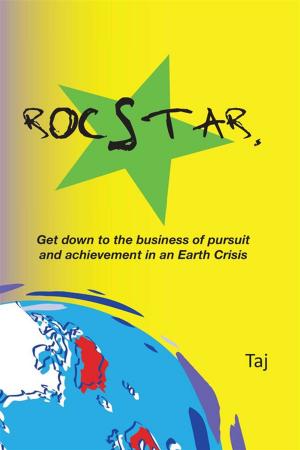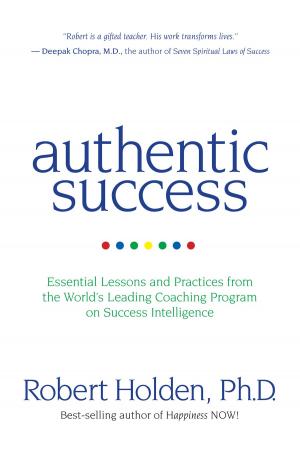Aristotle on Happiness, Pleasures, Pains and Friendships
Nonfiction, Health & Well Being, Self Help, Self Improvement, Success| Author: | Andreas Solomos | ISBN: | 1230001798371 |
| Publisher: | Andreas Solomos | Publication: | August 13, 2017 |
| Imprint: | Language: | English |
| Author: | Andreas Solomos |
| ISBN: | 1230001798371 |
| Publisher: | Andreas Solomos |
| Publication: | August 13, 2017 |
| Imprint: | |
| Language: | English |
In a rather unique and engaging way, the author makes use of brief fictional narrative to demonstrate and illustrate Aristotle’s discussions via contemporary characters in six different scenarios. The anecdotes involve desired effect, theme, character, tone, mood and style.
Aristotle’s wisdom is eternal. More than 2,239 years have lapsed since his death, but his work lives on and is very much alive today as it was then, for no matter the passage of time, the time tested concepts are true now and have practical, philosophical and spiritual meanings in our daily lives.
Happiness, pleasure, virtue, vice, pains and discontents, reasoning, deliberation, passions, love and friendship are poured into Aristotle’s kylix and offered to you. But you need not taste it – for you have already tasted these ‘things’ in your own private and personal kylix. Whether you thought it was pleasure and ended causing you discontent, you are not alone.
The characters in these stories have their own kylikes. You will meet them in this book:
Andriana, the daughter of a tycoon, in her private yacht and later on enjoying a night under the stars – and observe the way she had manifested her discontent…
The president and his chief of staff in the Oval Office discussing How to Make the People of America Great Again…
The duck hunter and his two buddies who pursue their passion beyond ‘the limit’ in a cool fall morning…
Ms. A.B. battling with the judge in the courtroom to allow her to cohabit with the man she loves and the man the judge disapproves for obvious reasons…
Simon Wang, a day trader, as he gets up early in one smoggy morning to contemplate his future and his version of happiness as manifested by his deeds…
Camila the Mexican woman who lives illegally in the United States of America and how she pursued her dreams to bring her little girl one day to America…
Aristotle offers us his wisdom in many ways. It is common sense, but we may realize this after the fact. Knowing, thinking and acting purposely, therefore, is front and center in Aristotle’s pronouncements.
Happiness could be different things to different people, and possessions and human attributes can also be subject to the same misconception, which can cause harm to many people. Aristotle reminds us that certain individuals have been ruined by their wealth and others by their bravery.
Aristotle cautions us to be alert in accepting everything we hear as being an undisputable fact. For Aristotle, a noted characteristic of a learned person is to seek precision in each instance to the degree that the nature of the subject matter permits.
But the above are only scant references to the depth of perception of this great philosopher and scientist whose intellectual spectrum was enormous, including the sciences, the arts, ethics, rhetoric, philosophy, psychology, zoology, politics, biology, botany, chemistry, history, metaphysics, physics, poetics, and logic.
In a rather unique and engaging way, the author makes use of brief fictional narrative to demonstrate and illustrate Aristotle’s discussions via contemporary characters in six different scenarios. The anecdotes involve desired effect, theme, character, tone, mood and style.
Aristotle’s wisdom is eternal. More than 2,239 years have lapsed since his death, but his work lives on and is very much alive today as it was then, for no matter the passage of time, the time tested concepts are true now and have practical, philosophical and spiritual meanings in our daily lives.
Happiness, pleasure, virtue, vice, pains and discontents, reasoning, deliberation, passions, love and friendship are poured into Aristotle’s kylix and offered to you. But you need not taste it – for you have already tasted these ‘things’ in your own private and personal kylix. Whether you thought it was pleasure and ended causing you discontent, you are not alone.
The characters in these stories have their own kylikes. You will meet them in this book:
Andriana, the daughter of a tycoon, in her private yacht and later on enjoying a night under the stars – and observe the way she had manifested her discontent…
The president and his chief of staff in the Oval Office discussing How to Make the People of America Great Again…
The duck hunter and his two buddies who pursue their passion beyond ‘the limit’ in a cool fall morning…
Ms. A.B. battling with the judge in the courtroom to allow her to cohabit with the man she loves and the man the judge disapproves for obvious reasons…
Simon Wang, a day trader, as he gets up early in one smoggy morning to contemplate his future and his version of happiness as manifested by his deeds…
Camila the Mexican woman who lives illegally in the United States of America and how she pursued her dreams to bring her little girl one day to America…
Aristotle offers us his wisdom in many ways. It is common sense, but we may realize this after the fact. Knowing, thinking and acting purposely, therefore, is front and center in Aristotle’s pronouncements.
Happiness could be different things to different people, and possessions and human attributes can also be subject to the same misconception, which can cause harm to many people. Aristotle reminds us that certain individuals have been ruined by their wealth and others by their bravery.
Aristotle cautions us to be alert in accepting everything we hear as being an undisputable fact. For Aristotle, a noted characteristic of a learned person is to seek precision in each instance to the degree that the nature of the subject matter permits.
But the above are only scant references to the depth of perception of this great philosopher and scientist whose intellectual spectrum was enormous, including the sciences, the arts, ethics, rhetoric, philosophy, psychology, zoology, politics, biology, botany, chemistry, history, metaphysics, physics, poetics, and logic.















